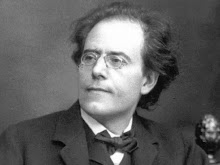Kiki & Booba
 From Wikipedia
From WikipediaIn a psychological experiment first designed by Wolfgang K?hler, people are asked to choose which of these shapes is named Booba and which is named Kiki. Decide which is which and then scroll down to see the result.
.
.
.
.
.
.
.
.
.
.
.
.
.
.
.
95% to 98% of people choose Kiki for the orange angular shape and Booba for the purple rounded shape.
It is thought that this has implications for language development, in that the naming of objects is not completely arbitrary. The rounded shape may most commonly be named Booba because the mouth makes a more rounded shape to produce that sound. Similarly a more taut, angular mouth shape is needed to make the sound Kiki. The sounds of a "K" are harder and more forceful than those of a "B", as well.
Note also that, in the Roman alphabet, the angular shape mimics the angular letters K and I, while the rounded shape mimics the rounded letters B and O.


2 Comments:
nobody tried this?
"Kiki for the orange angular shape and Booba for the purple rounded shape."
Yes ar~
好正常 bor~
Post a Comment
<< Home